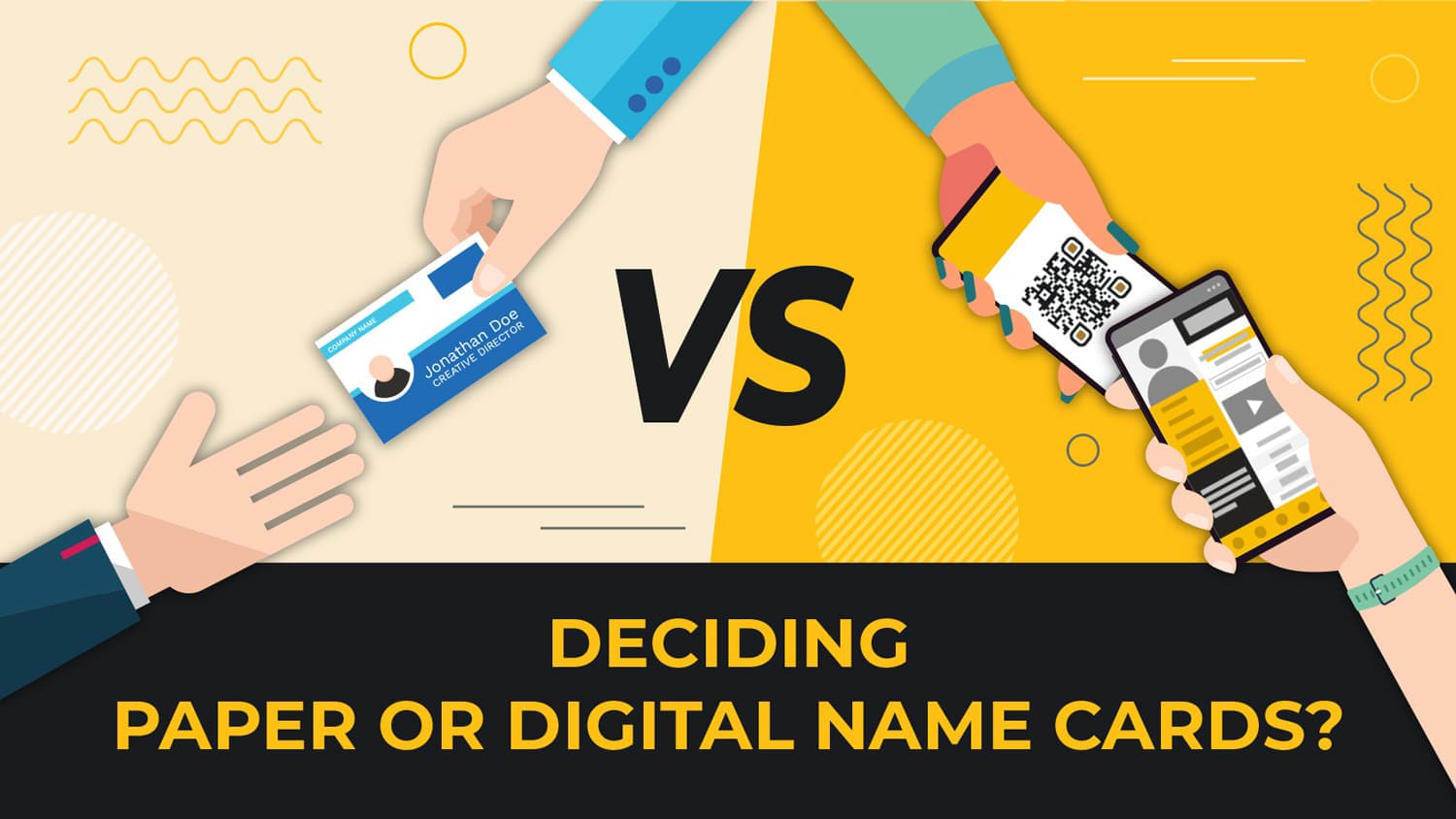Switching to digital business cards can be challenging for many people due to a combination of cultural, technical, and practical factors:
Cultural and Habitual Resistance
Business cards have long been an ingrained part of professional culture in many regions, especially in Asia, where they are often exchanged as part of formal introductions. Many people find comfort and professionalism in the physical exchange of a card, which can feel more personal and tangible.
People are also accustomed to the straightforward process of handing over a physical card, which doesn’t require additional steps or technical know-how.
Technical Barriers
Digital business cards often require both parties to have compatible technology or applications to exchange information seamlessly. For example, QR codes or NFC (Near-Field Communication) tags are popular, but they may require certain apps, newer phones, or an internet connection.
Some professionals may not be comfortable with or knowledgeable about digital tools, creating a learning curve that can hinder adoption, especially for older generations.
Privacy and Security Concerns
With digital cards, people may worry about privacy, as exchanging contact information digitally can sometimes involve sharing more details than intended, or even the risk of cybersecurity issues like phishing.
Some people prefer physical cards as they can choose exactly what to share and are cautious about the security of digital platforms that store personal data.
Reliability and Accessibility
Digital cards rely on battery power and technology that may not always be reliable. If a device is out of battery, or if there’s no internet connection, it can be challenging to access or share a digital business card.
Not all recipients may have devices compatible with digital formats, so people may feel physical cards are more versatile and accessible for a broad range of connections.
Lack of Universally Accepted Standards
There are no universal standards for digital business cards, meaning people use various apps and formats. This fragmentation makes it difficult to ensure compatibility, leading some professionals to stick with physical cards for ease of use across industries and geographies.
Despite these challenges, many professionals are slowly shifting to digital business cards as they offer numerous advantages over traditional paper cards, especially in a world that increasingly values efficiency, sustainability, and connectivity. Here are some key benefits:
1. Cost Savings
Digital business cards eliminate printing costs. There’s no need to continually reprint cards for updates like role changes, address changes, or rebranding. This can be especially valuable for small businesses and startups aiming to reduce expenses.2. Environmental Impact
Digital cards are eco-friendly as they reduce the need for paper, ink, and other resources used in traditional card printing. They align well with sustainability goals and are more appealing to environmentally conscious customers and partners.3. Convenience and Accessibility
With digital cards, all contact information is instantly accessible on a mobile device, and there’s no need to carry around stacks of physical cards. This is especially useful for professionals on the go who attend multiple networking events.4. Easier Sharing and Storage
Digital cards can be shared instantly via QR codes, NFC, email, or text, allowing recipients to add your information directly to their digital contacts with a tap or click. This minimizes the risk of losing contact details, as recipients can store your information directly on their devices.5. Real-Time Updates
One of the biggest benefits is the ability to update your contact information in real time. When you update your digital card, it can automatically reflect changes for people who have already saved it, ensuring they always have your latest details.6. Enhanced Customization and Functionality
Digital cards can contain interactive features, such as links to social media profiles, websites, portfolios, and more. They can also include video introductions, images, or location maps, making it easier to provide a richer experience.7. Data Analytics
Some digital card platforms provide insights into engagement, letting users see when and how often their card is viewed or shared. This feedback helps professionals understand their networking effectiveness.8. Integrations with Digital Platforms
Digital business cards often integrate seamlessly with CRM systems, contact management apps, and email platforms. This allows businesses to streamline contact management and follow-up activities, enhancing productivity and relationship management.Incorporating digital business cards not only enhances networking but also aligns well with modern business and environmental trends, supporting both convenience and connectivity.







